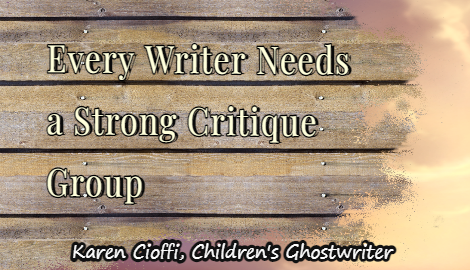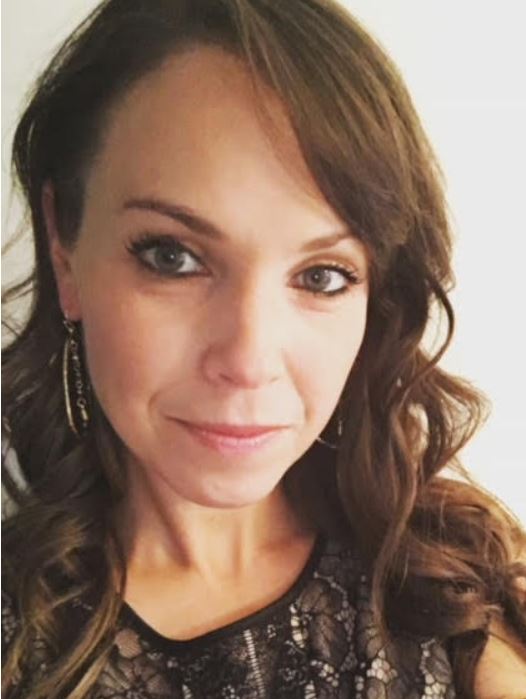Contributed by Maryellen Annese
When I first started writing, one of the best pieces of advice I got was to join a critique group. Thankfully, when I joined SCBWI, I found a group of picture book writers who met monthly to critique their works in progress. Over the last few years, I have learned so much from them. I have changed and I have grown as a writer, with their helpful guidance and advice. I strive to be a good critique partner too. I’ve found that when I look at a critique partner’s story, I follow the same structure each time:
1) Read the story all the way through first- ideas may pop into my head but I need to get a sense of the story, the whole story, before commenting.
2) Sit on it. I find my best ideas are found upon reflecting on the story for a few hours at least.
3) When I return to the story, I often ask myself these questions:
- Does the story’s main character reflect a child? Does the problem or issue the character has reflect something a child could relate to?
- Is there an emotional arc to the story? Has the character changed in some way?
- Are there places where the text could be cut in order for the illustrator to be creative?
- Any repeated words? Cliché phrases? Too much telling not showing?
- Does the opening line grab?
- Is the ending satisfying?
4) Critique time. I approach critiques the same way I do with parent-teacher conferences. Start out with the positives. Comment on everything that is working. Then discuss the questions above and any related comments- any areas to improve. Finally, come full circle and finish with something positive.
I am still learning every day, but so far this approach has been working for me. Every week, I check out at least 10 new picture books from the library in hopes that by reading more and more in our genre, I can become not only a better writer, but a better critique partner.
Critique Groups/SCBWI
I was recently asked how I would measure the value of my critique group. My answer: immeasurable!
I have been involved with the same critique group for about two years now. I found them by joining SCBWI and connecting with writers in my local chapter. We have six members in our critique group. Each month, members can submit a manuscript they have been working on. We zoom on the second Friday of the month to discuss. The feedback I have gotten from my critique groups have been stellar and I have learned a TON from them.
For some people, including myself, it is hard to hear criticism about your “baby”. After each revision on any given manuscript, I always feel like I’m done. Thank GOD I have my writing group. They bring me back to Earth in a nice way and give excellent feedback to help take my work to the next level.
Of course, not everything that is said in the group I will use or change in my work. But when multiple people bring up the same issue- then I know I need to work on something. My manuscripts would not be nearly as polished if it weren’t for them.
People who say that “it takes a village” to raise a child, may not know that this also applies to writing a book. My village of supporters in my writing journey is quite vast. Recently, a writer friend was giving me feedback on my manuscript for my picture book biography. She said that readers should not just learn the history of my topic, but should be inspired by it. This really changed the way I looked at my story.
Critique groups can be hit or miss from what I’ve heard. But when you find the right people, you just know. My biggest piece of advice for new writers- join SCBWI and find a critique group!
Write What You Love–Love What You Write
I have always admired picture book groups like 12×12 where the goal is to write one picture book manuscript for each month of the year. Although I have never tried it, I have a hard time imagining myself coming up with a good enough idea for every month of the year. As of March 2021, I have been on my writing journey for almost 3 years and have written six polished picture book manuscripts.
As I reflect on the writing process in each of those pieces, some of them have been more motivating than others. My first manuscript, I had the concept idea first and spent nearly a year and a half painstakingly polishing it.
For another MS, I had the catchy title idea first and wrote the story around that. After one or two revisions, I put it to bed. But certain ideas that really have grabbed me, have driven me to continue with this process. I’ve been working on my picture book biography for over a year now. The subject of this bio was blessed upon me from my students. But I was so taken with this subject that I couldn’t —and won’t— give up on the protagonist until his story is told. I have been motivated to revise, revise and revise some more with that story. I truly love this topic.
Certain stories I have written, I have procrastinated FOREVER to look at again after a critique. I just didn’t love those ideas as much. But when the idea really hits you and it’s something you identify with, you will enjoy the writing process that much more. It’s just like falling in love- you just know. When I write about what I love, then I really love writing.
Props to all the 12x12ers. You inspire me. Maybe someday I will work up the courage to join you. But for now, I am digging for the gold that is those ideas that I really believe in, which brings so much enjoyment for me to write.
This article was first published at:
https://maryellenannese.weebly.com/writing-tips.html
ABOUT THE AUTHOR
Maryellen Annese was raised in Croton-on-Hudson, NY. She studied Elementary Education at Loyola College (now Loyola University) in Baltimore and received her MA from Johns Hopkins U. in Reading and ENL instruction. She’s taught various ages of elementary education for 11 years. She is also a kidlit creator and ha written fiction and non-fiction picture book manuscripts and #amquerying. She is currently a volunteer for the Eastern NY region of SCBWI (Society of Children’s Book Writers and Illustrators). If Maryellen wasn’t writing or teaching, and could have any talent in the world, she’d be a professional singer playing the role of Angelica Schuyler in Hamilton.
Whether you need help with ghostwriting, rewriting, or coaching, let me take a look at your children’s story. Just send me an email at: kcioffiventrice@gmail.com. Please put “Children’s Writing” in the Subject box. Or, give me a call at 347—834—6700.
Or, if you’d rather give it a shot and do-it-yourself, check out my book, HOW TO WRITE A CHILDREN’S FICTION BOOK.
Should You Really Write a Book?
4 Reasons Why Self-Publishing Your Children’s Book May Be Your Best Option




